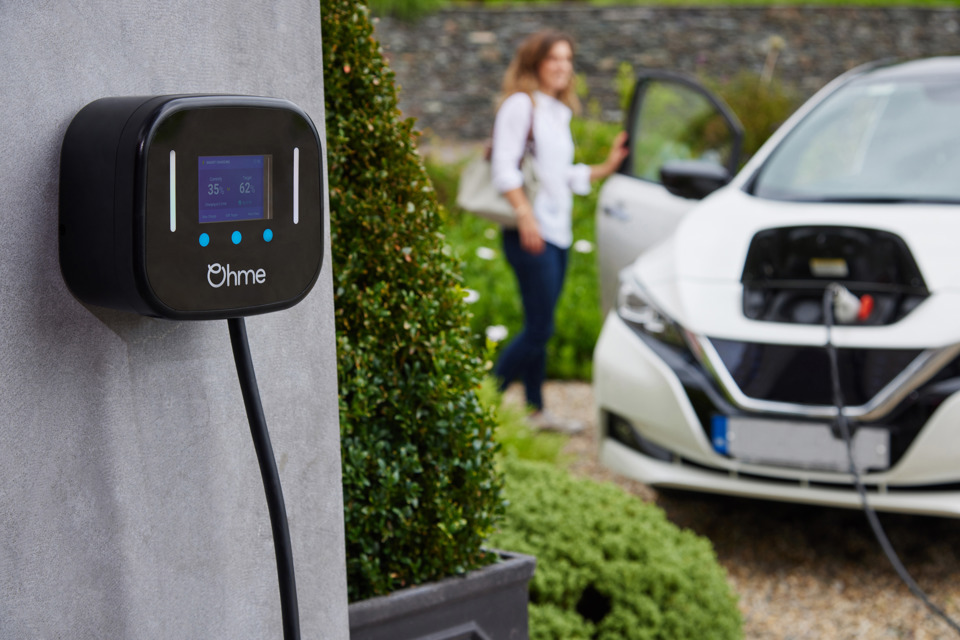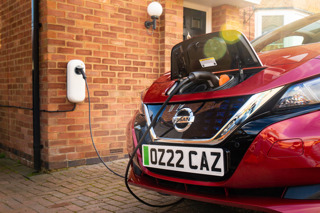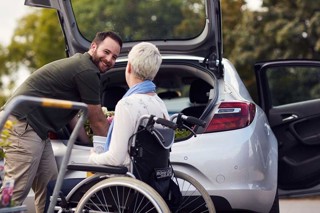The UK Government believes smart charging could save high-mileage electric vehicle (EV) drivers up to £1,000 per year as part of a new Electric Vehicle Smart Charging Action Plan.
The plan, published by the Government and Ofgem today (January 17), wants to make smart charging the preferred method of long duration charging by 2025 and proposes a number of further actions, including allowing motorists to power their homes using the electricity stored in their plug-in car or van.
As recently discussed in an AM’s ‘5 Minutes With…’ Q&A with Ohme mobility director Peter McDonald, smart charging allows motorists to charge EVs when electricity is cheaper or cleaner and can allow consumers to power their home using electricity stored in their EV or even sell it back to the grid.
Depending on tariff, mileage, and charging patterns, smarter charging could save an average driver up to £200, and a high mileage driver up to £1,000 a year by delaying the power demand from EVs at peak periods, such as 4pm to 9pm on winter evenings, says the Government.
Maximising the benefits of smart charging
Government has allocated £16 million funding from the Net Zero Innovation Portfolio (NZIP) for technologies that harness the potential of smart charging, including a smart street lamppost which will enable motorists to access smart charging on the move, and projects that will enable domestic appliances, from heat pumps to EV charge points and batteries, to integrate into a smarter energy system.
Energy and climate minister Graham Stuart said: “We want to make smart charging an easier choice for drivers of electric vehicles, whether that is charging on the driveway, at the workplace, or parked on the street.
“To do that we need to build new network infrastructure at pace, using the latest available technologies.”
Government’s new plan has been published just days after a Net Zero Review delivered on behalf of the Department for Business, Energy & Industrial Strategy (BEIS) recommended the swift delivery of an electric vehicle (EV) mandate and VAT cuts to make public charging more affordable.
It sets out how the Government will work with Ofgem and industry to kickstart the market for smart charging.
Ofgem director for strategy and decarbonisation, Neil Kenward, said: “As energy regulator, we’re helping create the infrastructure to deliver Britain’s net zero future at the lowest cost to customers.
“This latest innovative plan will help to maximise the benefits of smart charging, offer vital savings to consumers and reduce the overall cost of energy by seizing the opportunities to use batteries to both power homes and fuel the wider grid.”
As of July 2022, all new charge points sold for private now must have smart functionality and the UK is consulting on a new policy and technical framework to unlock the benefits of domestic smart, flexible energy, and enhance its cybersecurity.
Through the plan, Government has said it will improve publicly available information and evidence on smart charging, support the implementation of robust consumer service standards and ensure private charge points are secure and compatible with the latest energy innovations.
Alongside Ofgem it will also seek to remove the barriers that currently prevent the full development of a diverse and competitive smart charging market, while making sure the energy system is ready to respond to the upturn in energy demand that electric vehicles will bring.
Government funding allocation
Among those receiving funding today through the V2X (Vehicle to Everything) Innovation Programme for prototype hardware, software and business models, are:
- £229,000 to a project led by Otaski Energy Solutions (Gateshead, Tyne and Wear) to develop a smart street lamppost capable of charging electric vehicles and sharing power back to the grid
- £220,000 to V2X-Flex (Reigate, Surrey), a project led by EV Dot Energy Ltd to develop prototype software and a new business model which will reduce entry barriers for the domestic use of V2X bi-directional chargers to provide energy flexibility services
- £165,000 to BEVScanV2X (London), a project led by Agile Charging Ltd to develop technology that could overcome battery degradation by creating a cost-effective tool to monitor and advise best approaches to maximise battery life and financial returns from smart charging
Among those receiving funding today through the Interoperable Demand-Side Response (IDSR) Programme, which supports technologies that allow consumers to remotely increase or decrease their energy use to take advantage of when energy is cheaper or more renewables are on the grid, are:
- £510,000 to Energy Smart Heat Pump (Chertsey, Surrey), a project by Samsung Electronics UK and their project partners Passiv UK to design and develop a technology solution that is able to provide demand side response (DSR) services via Samsung Heat Pumps, giving greater control of their usage on the basis of cost or carbon savings
- £1.2 million to Smart-DSRFlex (Manchester), a project by Landis & Gyr UK to demonstrate how DSR technology can help to manage a renewables-based electricity grid using the smart meter system
- £29,000 to Open DSR for All (Manchester), a project by Carbon Co-op to explore the benefits and technical barriers to an accessible approach to domestic DSR, potentially enabling more products being able to offer DSR in future




















Login to comment
Comments
No comments have been made yet.